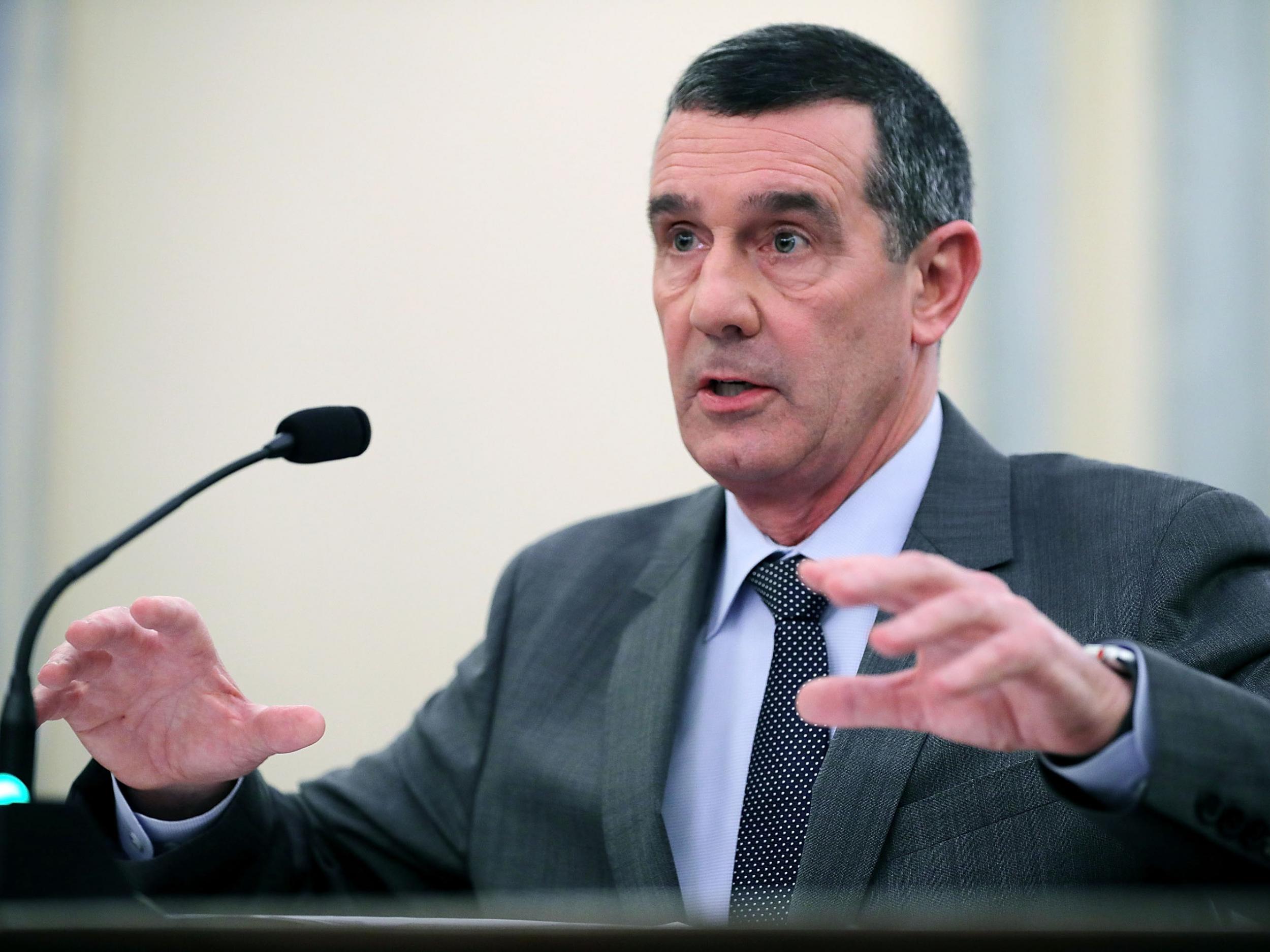Airport security agency to divert more than 600 workers to enforce Trump border policies, official says
Transfer comes as numerous reports identify unresolved airport security issues

Your support helps us to tell the story
From reproductive rights to climate change to Big Tech, The Independent is on the ground when the story is developing. Whether it's investigating the financials of Elon Musk's pro-Trump PAC or producing our latest documentary, 'The A Word', which shines a light on the American women fighting for reproductive rights, we know how important it is to parse out the facts from the messaging.
At such a critical moment in US history, we need reporters on the ground. Your donation allows us to keep sending journalists to speak to both sides of the story.
The Independent is trusted by Americans across the entire political spectrum. And unlike many other quality news outlets, we choose not to lock Americans out of our reporting and analysis with paywalls. We believe quality journalism should be available to everyone, paid for by those who can afford it.
Your support makes all the difference.Under direction from the White House, the Transportation Security Administration (TSA) plans to divert more than 600 workers from airport security to enforce immigration policies along the southern border.
Meanwhile, several airport security vulnerabilities identified in numerous reports by the inspector general and Government Accountability Office remain unresolved, lawmakers heard on Tuesday at a hearing of the House Committee on Oversight and Reform.
The hearing was intended to raise questions about the security reports and why they remain unresolved, and whether they were affected by Donald Trump's drive to secure the southern border against illegal immigration.
Nearly 200 TSA security personnel have already been dispatched, along with 172 federal air marshals, said the committee's chairman, representative Elijah Cummings, D-Md.
Mr Cummings said an additional 294 TSA employees - from an overall workforce of 63,000 TSA personnel - were about to be dispatched to the border.
"It will have no effect on aviation security," TSA administrator David Pekoske told the committee. "Border security is national security. This is a crisis. I have to balance off the risk at the southern border with the need to keep airports staffed."
Mr Cummings said, "Today, nearly 20 years after the terrible attacks of 11 September 2001, we are holding this hearing to examine why urgent warnings from independent auditors about security vulnerabilities at the Transportation Security Administration have been languishing for years without being resolved."
He pointed to a report released by the Government Accountability Office two months ago that said none of the "nine security vulnerabilities identified through covert tests" since 2015 "had been formally resolved" as of September 2018.
"Unfortunately, this is part of a larger trend," Mr Cummings said. "TSA also has failed to address warnings from the inspector general. As of this month, 37 recommendations made by the inspector general from 12 reports on aviation security remain open and unfulfilled. Several of those are many years old."
The hearing bristled with partisan contention, with top Republican representative Jim Jordan of Ohio responding: "The chairman is asking why the administration is sending TSA personnel to the border? Because there's a crisis."
Mr Jordan said that a single drug bust on the southern border seized "enough fentanyl to kill 57 million Americans."
Mr Cummings questioned the White House's priorities.
"The administration is not helping aviation security. They are harming it," he said. "Let me put this quite starkly: On the one hand TSA has dozens of security vulnerabilities that have languished for years, but the Trump administration is asking Congress for 700 more TSA screeners to handle huge increases in air travel. Yet on the other hand, the Trump administration is taking more than 350 of these critical TSA employees, diverting them away from their primary responsibilities . . . and sending them to the southern border."
Representative Gerald Connolly, D-Va, pressed the issue.
"I guess it seems counterintuitive that we would actually use TSA people to go down to the border," Mr Connolly said. "What is it that they're going to do down there? What is the expertise they bring to protecting or securing the border? Doesn't it take away from your mission?"
Mr Pekoske said it did not.
"We have a total of 350 or 400 people assigned to southwest border operations," he said.
This is not the first time there have been reports that undercover operatives penetrated TSA checkpoints.
In 2015, the then-acting TSA administrator Melvin Carraway was reassigned after the Department of Homeland Security (DHS) revealed that undercover agents were able to slip by TSA checkpoints 67 times when carrying bogus bombs or illegal weapons.
Two years later, the DHS inspector general's office issued a classified report that showed "identified vulnerabilities with TSA's screener performance, screening equipment, and associated procedures." And last year, another classified report by the inspector general questioned whether the TSA's Federal Air Marshal Service was effective.
Finally, an inspector general report in February "identified vulnerabilities with various airport access control points and associated access control procedures."
Mr Pekoske, who had been on the job as TSA's head for about three months in 2017, testified that year before a closed-door hearing of the House Committee on Homeland Security. Tuesday's hearing was the first open airing of concerns by the Oversight Committee.
In Tuesday's testimony, Mr Pekoske said: "Overall, the TSA has taken significant efforts to address the GAO and IG recommendations as quickly as possible. We have already submitted to the GAO requests for closure of four of the nine recommendations" on covert testing.
"As for the remainder, I'm committed to getting them closed as quickly as possible," he said.
The TSA oversees screening operations of about 2 million passengers each day. They perform the service at about 440 airports, where airlines operate about 25,600 domestic and international flights each day.
The Washington Post
Join our commenting forum
Join thought-provoking conversations, follow other Independent readers and see their replies
Comments